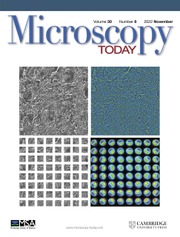
Giovanni Battista Amici (1786—1863)
Giovanni Amici was an Italian microscopist, astronomer, optical instrument designer, and botanist who is best known as the achromatic lens inventor. He also designed reflecting telescopes and introduced a lens for the inspection of an objective's rear focal plane, termed the Amici-Bertrand lens. Aditionally, in 1850 he invented the water immersion lens.

Born in the Duchy of Modena, Amici received a diploma in 1807 in engineering and architecture from the University of Bologna. He was a professor of mathematics at the University of Modena (1815–1825) and then chief astronomer to the Grand Duke of Tuscany. Amici was also the director of the observatory and professor of astronomy at Royal Museum in Florence. By 1859, he was responsible for reporting microscopic observations to the Museum of Physics and Natural History where he published a wide variety of papers. Minor planet (3809) Amici is named in his honor, as is a crater on the dark side of the Moon.
In 1840, Amici introduced the oil-immersion technique to microscopy that minimizes optical aberrations, followed by the water-immersion objective (1855). Many innovations by this nineteenth-century Italian designer have led important developments in the modern microscope, including a compound “periscope” instrument (1833), which moved microscopic viewing from the horizontal to vertical position, and a series of horizontal compound achromatic microscopes (circa 1850). One achromatic microscope had a quad-observation tube that allowed four individuals to simultaneously observe the specimen. The Amici prism, a combination of three prisms, is still used in refracting spectroscopy.
In astronomy, Amici studied double stars, studied Jupiter's moons, and designed improvements to reflecting telescope mirrors including grinding several 10-inch and 12-inch metal mirrors. With his own micrometer design, Amici made accurate measurements of the polar and equatorial diameters of the Sun. Combining botany interests with innovative advances in compound microscopes, the Italian scientist made important discoveries about the circulation of sap in plants and the processes of plant reproduction, including many details of orchid pollination and seed development.
Girolamo Cardano (1501—1576)
Girolamo Cardano was a sixteenth-century mathematician and physician who made an important adaptation to the design of the camera obscura. He was born on September 24, 1501, in Pavia, Italy, the illegitimate son of a prominent lawyer. He was sickly and impoverished in his youth but managed to receive an education at universities in Pavia and Padua. He was refused admittance to the College of Physicians at Milan due to his heritage, but he was awarded a degree in medicine in 1524 from the University of Padua.

Cardano received an appointment as mathematics chair at Milan in 1532 but continued to practice medicine. He gained a reputation for disagreeing with contemporary medical practices, but he was eventually accepted into the school that had previously rejected him and much later was appointed rector of the college. Cardano published a wide variety of works in the medical field, covering such diverse topics as how to teach the deaf and the blind, how to treat syphilis, and how to determine one's character based on facial expression. Over the years, he became one of the most well-known physicians in Europe and accepted a professorship in medicine at the University of Pavia in 1543.
In mathematics, Cardano was equally successful. In 1539, two of his books on arithmetic were published, and in 1545 Ars magica, the first notable work on algebra, was released. He was one of the first mathematicians to recognize the existence of square roots of negative numbers, now referred to as imaginary numbers, but was also an avid gambler. His interest in dice, cards, and games of chance led to his early development of probability theory. His systematic study and computations were published in Liber de ludo aleae almost a hundred years before any other important publications on the subject.
Cardano's most popular works during his lifetime, however, were De subtilitate libri, published in 1550, and its follow-up De subtilitate rerum, published in 1557. The works covered a wide array of topics and contained natural history, anecdotes, physical experiments, and inventions. It was in De subtilitate libri that Cardano made his primary contribution to optics. Within the work, he described the use of a bi-convex lens in conjunction with a camera obscura, the earliest known mention of such a design. He also included detailed descriptions of the improved images he was able to achieve with the configuration, which increased both sharpness and intensity.
Despite a successful career and the publication of over 200 works, Cardano's life was filled with turmoil. He married Lucia Bandarini in 1531, but she died in 1546, leaving Cardano the sole caretaker of three children. His eldest son, who was on track to becoming a successful physician like his father, was convicted of poisoning his wife and beheaded in 1560. The tragic chain of events was extremely distressful to Cardano who was further affected when he lost his teaching position because of the scandal. He was, however, offered a position at the University of Bologna and soon relocated to begin work there.
Yet, Cardano's troubles were not over. He suffered another great loss in 1565 when his ardent student and collaborator Ludovico Ferrari died from poisoning. Then, in 1570, Cardano himself became the center of controversy for casting the horoscope of Jesus Christ and attributing the events of his life to the stars. He was convicted of heresy and imprisoned. To gain his release, he was forced to promise to give up teaching and his long career abruptly came to an end. On the advice of friends, he moved to Rome where he lived a quiet life until September 21, 1576, when he died just three days before his seventy-fifth birthday.




